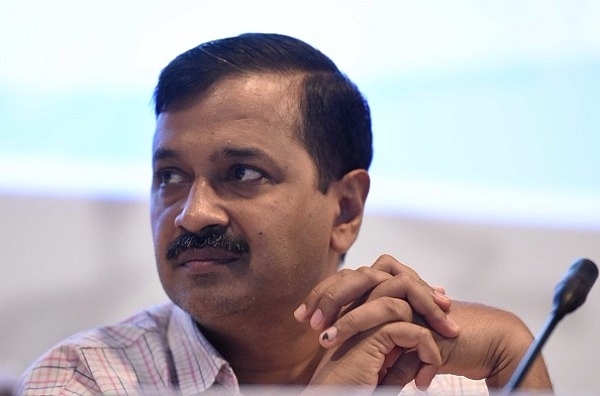Insta
Kejriwal Vs Lieutenant Governor: Delhi Different From Other States, LG To Be Apprised, Says SC

Delhi Chief Minister Arvind Kejriwal (Sonu Mehta/Hindustan Times via Getty Images)
The position of Delhi is different from other states and the elected government is under an obligation to apprise the Lieutenant Governor about policy decisions, the Supreme Court said on Tuesday.
While hearing pleas on who enjoyed supremacy in governing the national capital, a five-judge Constitution bench headed by chief justice Dipak Misra referred to provisions of the Constitution, the Government of National Capital Territory of Delhi Act and the Transaction of Business of the Government of National Capital Territory of Delhi Rules and said there was “some kind of wall” which distinguished Delhi from others.
“Unlike other states, if you (Delhi government) take a policy decision, then you have to intimate the Lieutenant Governor (LG). You are bound to intimate the LG, but you cannot say that the LG has to concur. This is the range,” the bench, also comprising justices A.K. Sikri, A.M. Khanwilkar, D.Y. Chandrachud and Ashok Bhushan, said.
On the issue of concurrence, the top court said there was no need for “fundamental concurrence” of LG in every aspect and there should be “real good reason” in case of difference of opinion over the decision of government.
It said a balance needed to be maintained between the powers of the LG and the chief minister and the council of ministers. Every file is not required to be placed before the LG, but only those which are mentioned in the Transaction of Business rules.
The bench, during the day-long hearing, also referred to provision 23 of the Transaction of Business rules and said in certain cases like in matters of peace and tranquillity of the capital, the issue “shall essentially be submitted to the LG through the chief secretary and the chief minister before issuing any orders thereon”.
Senior advocate Gopal Subramanium, arguing for AAP government, said “as a responsible government, we cannot contest it”. He, however, said the constitutional schemes be given the widest interpretation and they cannot be interpreted to defeat what is intrinsic to the Preamble.
On the issue of mandatory “aid and advice” of the council of ministers to the LG, the senior lawyer said it was “not a permission to interfere”. Referring to Article 239AA which deals with Delhi, he said supremacy of Parliament on law-making was not being questioned, but theory of separation of powers was also a key to participatory democracy, which has to be considered.
The court said in case of difference of opinion with regard to a law made by Delhi assembly, the LG has the power to refer it to the President for a decision and sub-article 4 of Article 239AA provides that pending decision, the LG can pass an interim order if necessary.
The counsel for Delhi government said the elected government has powers to undertake executive functions. “It is not permissible that the Lieutenant Governor use residuary powers to take primacy and, moreover, the overriding powers cannot be vested with the LG,” Subramanium said.
Subramnium asked in matters relating purely to welfare measures like opening of primary health centres or a school or a night shelter, does the government need the LG’s concurrence. “IAS-IPS officers are from All India Services. Does that mean they won’t listen to the CM and council of ministers,” he said, adding transfer orders are passed by LG. The arguments remained inconclusive and the senior advocate will resume them tomorrow. (PTI)
Support Swarajya's 50 Ground Reports Project & Sponsor A Story
Every general election Swarajya does a 50 ground reports project.
Aimed only at serious readers and those who appreciate the nuances of political undercurrents, the project provides a sense of India's electoral landscape. As you know, these reports are produced after considerable investment of travel, time and effort on the ground.
This time too we've kicked off the project in style and have covered over 30 constituencies already. If you're someone who appreciates such work and have enjoyed our coverage please consider sponsoring a ground report for just Rs 2999 to Rs 19,999 - it goes a long way in helping us produce more quality reportage.
You can also back this project by becoming a subscriber for as little as Rs 999 - so do click on this links and choose a plan that suits you and back us.
Click below to contribute.
Latest